TechTank, a biweekly podcast from the Center for Technology Innovation at Brookings, explores today’s most consequential technology issues. Moderators Nicol Turner Lee and Darrell West speak with experts and policymakers to share data, ideas, and policy solutions that address the challenges of our digital world.
Discussions of artificial intelligence (AI) are inescapable online, whether scrolling through social media or catching up on headlines. And how we feel about these debates are often reflective of our backgrounds, experiences, and interactions with the technology.
A report by Pew Research Center shares new research related to the opinions by technical experts and the public. By polling these communities, the report was able to compare perceptions of AI related to opportunities and fears, as well as insights from these communities on AI’s impact on the future of work, and other use cases like elections and voting.
In this episode of the TechTank podcast, co-host Nicol Turner Lee is joined by Monica Anderson, the director of internet and technology research at Pew Research Center, to discuss the findings and share what this means for future research and policy discussions.
Listen to the episode and subscribe to the TechTank Podcast on Apple, Spotify, or Acast.
Transcript
CO-HOST NICOL TURNER LEE [00:00:00] You’re listening to Tech Tank, a bi-weekly podcast from the Brookings Institution, exploring the most consequential technology issues of our time. From racial bias and algorithms to the future of work, Tech Tank takes big ideas and makes them accessible. Welcome to the TechTank Podcast. I am co-host, Nicole Turner-Lee, the director of the Center for Technology Invasion at the Brookings Institution. Artificial intelligence, as you all know, is one of the fuzziest phrases and headlines on social media and within the legislatures. But our understanding of AI and its perceptions by other people present very different views. And one group in particular that we have recently heard from are researchers like myself, who are seeking to better understand those opinions and how they evolve as AI is further integrated into the lives of everyday people. So just recently, our guest put together a study which looked at how the public in the United States is more concerned than excited about AI’s potential impacts and looked at a variety of issues. That will help us better understand how the research community and the general public are either aligned or less aligned on AI’s use. I’m joined today by Monica Anderson, the Director of Internet and Technology Research at the Pew Research Center. I know you know the Pew Research Center. If you are following me, you gotta know them because I talk about them all the time. And she’s also the lead on a new report. On how adults in the US and AI experts view the emerging technology. So I just reeled you into the subject for today’s podcast. Monica has experience in public opinion research, and she is the one that is the master expert when it comes to issues like the digital divide, privacy, social media, and now AI. Monica, thanks so much for joining me. Thanks so much. For having me. So I wanna jump into your report for transparency. I know that you look to experts like myself as well to sort of help you think about how you were gonna put this report together. This report, how the US public and AI experts view artificial intelligence, just came out. It’s available on the Pew Research website and I’ll have you give more details towards the end. But I wanna ask you, why this study and why now?
GUEST MONICA ANDERSON [00:02:34] One of the things that we have a long track record at Pew is studying emerging technologies. So starting in 2021, we really wanted to go deep and start a multi-year effort to really understand people’s attitudes and experiences with AI. And so since then, we’ve looked at things like people’s hopes and worries, including their views on things like driverless cars or algorithms. One of the things that we did know is that even though we were building a lot of great research on the public opinion side, there’s not a lot studies that examine the views of those working or studying in the field, especially those that compare and contrast the experiences of the public and experts. So the main reason we wanted to do this study is to really have Early look and how AI experts and everyday Americans think about a lot of AI related issues. And so we wanted to understand their expectations on how these technologies might change society, highlighting what they might see are pressing concerns, but also what excites them. So this is really gives us our first look to see where the public and experts might be aligned, where they disagree, and where there’s a level of uncertainty between both groups. So.
CO-HOST NICOL TURNER LEE [00:03:59] Given your expertise in studying these topics, what findings from the project like really surprised you?
GUEST MONICA ANDERSON [00:04:07] You know, one of the things that really stood out to us is that for all the big gaps that we see between the public and experts, particularly on just kind of broad questions on its impact and predictions, there’s also some really interesting areas of alignment between the pubic and experts. And particularly on this idea of them both wanting more personal agency when it comes to AI. So for both groups, there’s a common sentiment that they don’t have a lot of control when it comes to whether AI is used in their lives. About half or more in each of these groups say they have little to no control. At the same time, both sides do want more agency when it comes personal control over AI, more than half of U.S. Adults, and a similar share of AI experts. Say they want more control over this. So I think one of the really interesting takeaways is that while we do see some big gaps, there’s also areas like this where both groups are on the same side of an issue.
CO-HOST NICOL TURNER LEE [00:05:16] Why do you think that is? Is it because the experts like myself, and I can attest to this, really have limited information to understand how these models work as well? And so it sort of puts us in the same seat as everyday people who also feel that these systems are very opaque. Could that be it, or is it something else?
GUEST MONICA ANDERSON [00:05:35] You know, one of the things that we did in addition to our survey is that we also did in-depth interviews with dozens of experts from the survey, and I think one of things that we found with this work as well as kind of other work is that people bring their views and attitudes regardless of what industry that they were in. And so to your point about kind of why there might be alignment here, I think that regardless of whether you are an expert in this or you’re a consumer, you are impacted individually by these technologies. And so I think that that can help explain some of this work. And we also saw that as a response to some of the answers that we got in our in-depth interviews.
CO-HOST NICOL TURNER LEE [00:06:28] And when you think about just the technical cadence that the experts have over everyday people, this is sort of just to add on to what you’re talking about, could that also have something to do with it as well in terms of where there might’ve been distinctions between the two audiences? Like, do the experts really just know more about, I guess, the technical side of the technology versus the general public? Just curious.
GUEST MONICA ANDERSON [00:06:51] I think that’s a very interesting point and I think one of the things that we wanted to do with this work is also point to the fact that, you know, those that work in AI or study AI have a sense of the industry, a sense of the technology that maybe many Americans don’t. On the flip side, they can’t really speak. To the experiences of kind of everyday folks who are dealing with these issues who may not have the same level of awareness. That’s why I think that when we do find a lot of alignment, that’s why it’s really interesting to me. So regardless of how much knowledge you have, regardless if you’re an expert or not. You’re telling us that you want more government regulation, or you’re saying that you want more personal control. And so I think that really speaks to, regardless of where someone’s awareness or understanding is, they know enough to say that they want more government involvement. They know enough to think that they don’t have as much control as they want.
CO-HOST NICOL TURNER LEE [00:08:01] Well, one of the things that you talk about in the report, which I found to be very interesting as well, is this conversation as it relates to the future of work. What is AI’s perceived impact on jobs by both the public as well as experts? Because it seems to me that is like an issue that most people can resonate with, right? Versus whether or not there’s an algorithm that’s in a black box, you know, that is creating X, Y, or Z output. You know, people are actually seeing. How this is changing, the way work is organized, and the jobs that are available.
GUEST MONICA ANDERSON [00:08:33] And that’s exactly why we really wanted to kind of dig deeper into questions about work and think about how do you ask questions to the general public where they can, where we can really meet them where they are. And jobs and work is one of those areas that we’ve really gone deep on. At the same time, you know, we see some big kind of broad differences when it comes to how experts and the public think about AI. Experts are consistently more enthusiastic and optimistic than the general public, but where we see some of the biggest gaps is on our questions on jobs. Anxiety over job loss is particularly high among the general pubic, and that’s not just with this survey. We’ve consistently seen this for years. And in this report, we found that about two thirds of the public think AI will eliminate jobs over the next few decades. And that is substantially higher than the four in 10 AI experts who say that. So job, a concern about job loss was much higher concern for those that are in the general public than the experts. And at the same time, you know, most experts think AI will have a positive impact on the way people actually do their jobs. They see AI as something that’s really going to increase productivity for humans. But when we see those responses from the public, it’s nearly reversed. The public is very skeptical about what AI will be able to provide them, what it will help out with. And in the backdrop of this, we also asked a question really getting at the personal benefits and harms that people might see when it comes to AI. And you see that experts are far more likely than the public to think AI will personally benefit them.
CO-HOST NICOL TURNER LEE [00:10:28] Mm, that’s so interesting. And I mean, I’m going to get to this shortly because I think this might relate to literacy. But one of the other findings that you had in the study, which I think aligns with the work that we’re doing at Brookings at my center when it comes to equity, is that identity is another interesting result, right? And there was some consensus in your report around people with different backgrounds maybe not being highly representative. When we start to think about the development and design of these AI systems. Talk a little bit about that. I mean, talk about your sample of experts. I’m curious. I have a hard time uncovering a lot of what I call unhidden figures in the space that do not look like the typical AI developer, but more so just like what role factors like race and gender played in your study.
GUEST MONICA ANDERSON [00:11:19] That is one of the key things we really wanted. When going into this work, we were really keen on being able to look at differences between both groups, including between AI experts. And one of those findings that I think is super interesting in this work is that we see that AI experts are not a monolithic group. Experts don’t always agree, and we definitely see that when it comes to gender. So on across a number of different questions in our study, we see that men who work or study in this field, so male AI experts, are far more enthusiastic. They’re more open to AI. And on the flip side, the female experts in our studies tend to be more cautious and concerned when it comes to AI’s role in society. So just on a broad level, AI experts. In our survey are not all saying the same thing. They’re not all saying that AI will have a positive impact. In fact, only about a third of women in our AI expert sample said that they thought that AI would have a positive impact on the country over the next 20 years. So I think that’s a really important point to make that dimensions of difference exist within this population as well. And to your other question, one of the things that we touched on was whether people thought that those who designed these technologies take into account the views of different groups, including women or those who are black, Hispanic, Asian, white. And again, we see some really interesting differences even amongst our sample of experts. So here’s one of those findings. While half of male experts said that they thought that those who design AI took into account the views of women, only about a quarter of women said the same thing. And this pattern is something that we see among the general public as well. Men are more likely to say women’s opinions are well represented in AI design. And as we kind of continue the topic of bias in AI, When we used our in-depth interviews, we really wanted to understand questions about representation of gender and race and kind of other dimensions. And in those interviews, we did see a common response was that groups, particularly women and black and Hispanic workers were underrepresented in these fields. And some of these experts in these interviews describe this connection between the lack of representation in the workforce, and potential bias that might exist in AI models.
CO-HOST NICOL TURNER LEE [00:14:21] And how do you think that, I mean, I know this isn’t part of the study, but did you get a sense from the findings on ways in which some of these can be resolved? I mean was there sort of a landing place that we do need better representation from the experts as well as the public or, you know, from the way that you’ve explained it earlier in the podcast, maybe. The public has a couple of ping points where it really gets to them, you know what I mean? And the experts have a little bit more in-depth knowledge in areas in which they think there could be better transparency. I’m just curious if you were able to extrapolate that.
GUEST MONICA ANDERSON [00:15:00] There’s two things that I would point to. One, as I mentioned earlier, there’s a lot of energy around more government involvement and interventions when it comes to AI. And we’ve seen that in previous work as well. So this idea that there needs to be more oversight over what these companies are doing, how AI is being deployed. The other side of that is we also ask questions related to corporate responsibility. And we see that again, that both kind of the public and experts are wanting these companies to make sure that they’re acting more responsibly. And our question when it comes to representation, it’s clear that from both groups, there is this belief that those who are white or those who were male, are more represented when it comes to designing AI. And so as we think about this more holistically, there seems to be kind of a point of one, more government intervention, two, more opportunities for consumers to take more control over what AI is doing, and a third is kind of examining these ideas that the models and the kind of design in AI may not be taking into account different viewpoints. Yeah, that’s so interesting, and I think it’s-
CO-HOST NICOL TURNER LEE [00:16:27] It’s very helpful to the work that we do at Brookings, where we’re trying to leverage the AI Equity Lab as a space to bring in what I call interdisciplinary cross-sector leaders of various backgrounds, so that you’re able to have a conversation with some serious depth when it comes to AI in healthcare or AI in criminal justice, because you have the people around the table who are sort of immersed in those experiences. In ways that are just, you know, not just technical, you know. So I find that to be so interesting. And thank you, Pew, for helping me to think about the ways in which I frame my own research, right? Because at the end of the day, as these projects become more ubiquitously available in the marketplace, we do want them to be representative of more populations than just a few. And that brings me to like some of the more gritty topics like news and and other impact areas. That we’ve not discussed so far. I mean, in the report, was there a trend of where these commonalities exist among the public and bona fide AI experts when it came to just hardcore democratic policy issues? News, elections, what else did you make of those findings?
GUEST MONICA ANDERSON [00:17:45] You know, as I mentioned, there are a lot of areas where the public and experts are far apart in their views about AI, especially on a broad level. So you’ve got nearly 6 in 10 AI experts believe AI will have a positive impact on the country. That number drops to 17%. But that’s not to say that there aren’t a lot areas where these two groups are aligned. And we talked a little bit about the findings about personal control and regulation. But there are other areas where we did see some really interesting alignment and the ones that you hint at are findings around news and elections. So we had a question to really understand people’s predictions about certain segments of society over the next 20 years. And we asked about jobs, we asked health care, we ask about education and arts and detainment The two areas that had the most skepticism, the most kind of wary from both groups, centered around two things, and those were about AI’s role in how people get news and information, and AI’s roll in elections. So only about one in 10 U.S. Adults and experts think AI will have a positive impact on elections, and you also see about one and five or less say the same thing for news. We also ask some questions about what might be some of people’s kind of common concerns. And you see that there is alignment when it comes to concern about bias in AI. More than half of both experts in the public say that they are concerned about this. And you also see a lot of concern when it comes things like impersonations and deep fakes, as well as misinformation. So, there’s a lot here that really points to… Well there are areas in which there are kind of these high level of concerns that things that we have seen consistently that quite frankly our people are fearful is when it to information, news, and also the political realm.
CO-HOST NICOL TURNER LEE [00:20:02] And what would you say in terms of, and this is the experts weighing in, is there a role that the experts sort of shared that they need to play to ensure that we address these big rock areas? Or did you see it more, I mean, was the study more designed just to sort of give us that objective view of where people stand? I’d love to hear more like, how do we move with this Monica, right? As you put this research out, what are the nuances? Should we be taking from this so that we can actually build, you know, just better bandwidth when it comes to news and election integrity? So the main.
GUEST MONICA ANDERSON [00:20:39] Goal of this study was to really look at the two populations to see how their views compare and contrast, but there is something that stands out to me in some of the in-depth interviews that we did. So in addition to being able to look at differences by gender among AI experts, we could also kind of look at people’s place of work and industry. So looking at those experts who work in versus those who work for a private company or business. And for the most part, we don’t see a lot of big differences there, but on a broad level, those who worked in academia, a little bit more cautious about AI and its predictions. But where we do see some kind of really interesting differences, it’s around corporate responsibility. And so that is true in our survey. Those who work in academia are less likely to believe that these companies are acting in the best interest of of when they are working with AI and but that’s not to say that those that are working in more industry jobs you know many of those also talk about the importance of corporate responsibility and one quote that sticks out to me is that you had one of our experts who talked about Their concern around regulation is that they might be pro-regulation, but their concern is that because these technologies move so fast and because those that are in Congress may not have the same kind of level of information and these are emerging tech, their question was do they have all that they need to do to be able to regulate properly? And so when we think about kind of the roles that people think of, whether it’s themselves or the government, the other layer of that is that while they might be supportive of government regulation, I think there is a concern that the way that these regulations are going to be handed down may not do enough. They might not properly address the issues in which experts are concerned about.
CO-HOST NICOL TURNER LEE [00:23:02] Yeah, and that makes a lot of sense, right? Because one of the other challenges is if the experts aren’t at the table when the regulation or legislation is being drawn up, you’re essentially having, and I think this is what the academics sort of feel, maybe private interests guide the way that that regulation shapes up and what it looks like. And so I think your study is so poignant because it really is showing how, in many respects, those of us who throw around the… You know, buzziest word, as I said earlier, of AI. We’re actually talking to each other. We’re not maybe talking across the different sectors and verticals and spaces in which we’re actually using the technology. I think it was an excellent read. I’m so happy that Pew did this because we know very little about the public opinions that are on AI versus, you know just some of the harms and opportunities and the quest for greater innovation. I think what you tried to do is really get into the sticks and allow us to get a little different perspective on how different communities are showing up for the technology. Did I forget anything, Monica? No, I didn’t. I think we covered it all. Where can people find this new report of yours so we can direct them to go download it from the Pew Research Center?
GUEST MONICA ANDERSON [00:24:13] Absolutely. So we have all our reports on our website, pewresearch.org, so you can find this report along with a Q&A that gives you a behind-the-scenes look of how we conducted this
CO-HOST NICOL TURNER LEE [00:24:28] And is the data still open, the available to researchers who sort of want to play around with it as well?
GUEST MONICA ANDERSON [00:24:34] Kind of data sets are not available for this yet. We do like to, once we have kind of reported off of them, then we do post many of our data sets for people to do their own explorations.
CO-HOST NICOL TURNER LEE [00:24:48] Perfect, I love that about Pew, always have ever since I first met you, almost 15 plus years ago. So thank you for joining me, Monica, to discuss your incredible research and findings.
GUEST MONICA ANDERSON [00:24:59] Thank you so much for having me. I really loved our conversation.
CO-HOST NICOL TURNER LEE [00:25:02] Yeah, I did too. Your work is helping us all better understand the landscape of AI and we’re looking forward to reading that report and more to come. For listeners, you know where to find the report. I just encourage you to do that, particularly if you’re an expert like myself in AI. It does go into detail. And I can tell you there were a lot of researchers that were very helpful in guiding some of the exploration that was in the report itself. So if you want more content like this on tech policy issues, come visit us at Tech Tank on the Brookings website, accessible through Brookings.edu. Your feedback also matters to us about the substance of this episode. So leave a comment, let us know your thoughts, like it, share it with other people. We are very, very gracious to all of you that continue to maintain the tech. Tank podcast is one of the top 20 and many of those lists that are offered online. This concludes another insightful episode of the TechTank Podcast. We make bits into palatable bites. Until next time. Thank you for listening. Thank you for listening to Tech Tank, a series of roundtable discussions and interviews with technology experts and policymakers. For more conversations like this, subscribe to the podcast and sign up to receive the Tech Tank newsletter for more research and analysis from the Center for Technology Innovation at Brookings.
The Brookings Institution is committed to quality, independence, and impact.
We are supported by a diverse array of funders. In line with our values and policies, each Brookings publication represents the sole views of its author(s).


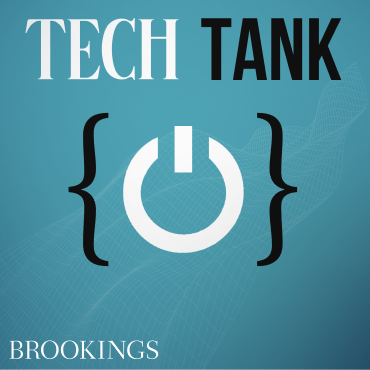
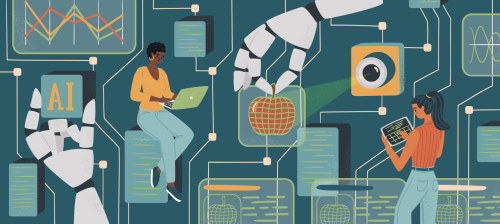


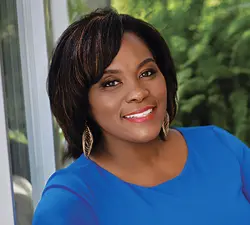
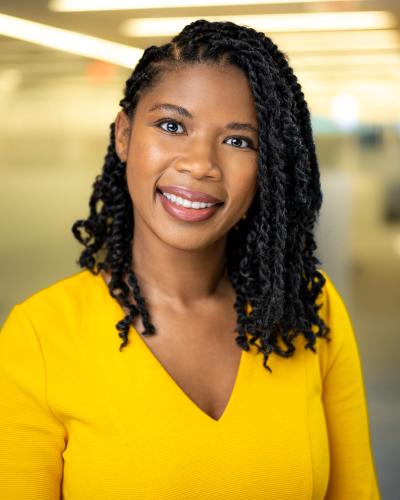

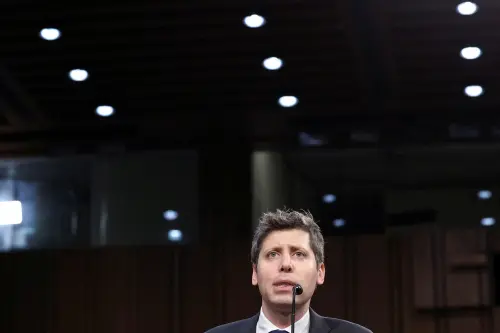

Commentary
PodcastWhat experts and the public think about AI | The TechTank Podcast
Listen on
May 19, 2025